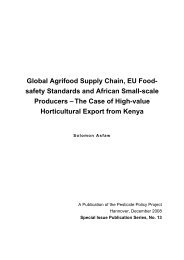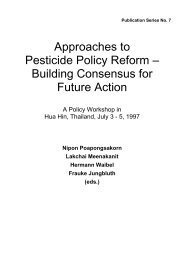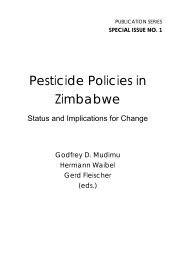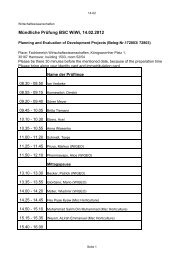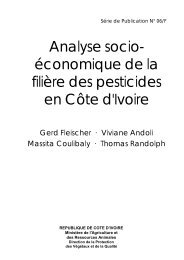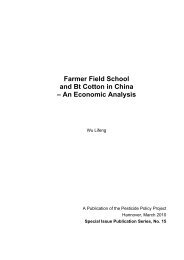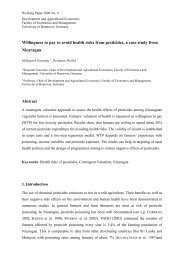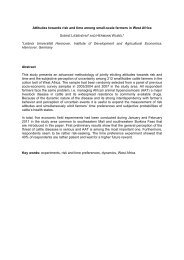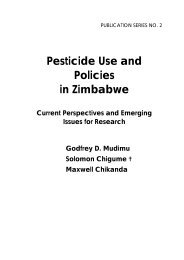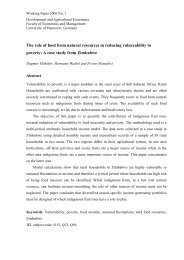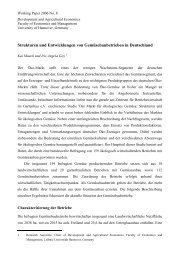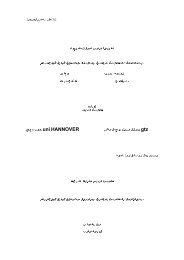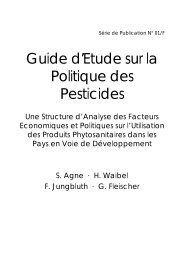PPP Special 08 - Institut für Entwicklungs- und Agrarökonomik
PPP Special 08 - Institut für Entwicklungs- und Agrarökonomik
PPP Special 08 - Institut für Entwicklungs- und Agrarökonomik
You also want an ePaper? Increase the reach of your titles
YUMPU automatically turns print PDFs into web optimized ePapers that Google loves.
5<br />
the Bt cotton area reaches 2.2 Mill ha (ISAAA, 2002), which are about<br />
10 per cent of the total world cotton area, since other main cotton<br />
producing countries gave commercial approval for insect-resistant Bt<br />
cotton (China 1997, India 2002).<br />
According to Khadi et al. (2002), in India, efforts were made on breeding<br />
cotton varieties resistant or tolerant to insects. But these efforts have<br />
never resulted in a cultivar that exhibited sufficient resistance to<br />
bollworm.<br />
In 1998, the Maharashtra Hybrid Seeds Company (Mahyco) conducted<br />
multi-location field trials (in seven states of India) on Bt cotton <strong>und</strong>er the<br />
supervision of the Indian Council for Agriculture (ICA), DBT and<br />
agricultural universities. (Liberty <strong>Institut</strong>e, 2002).<br />
The attempts of the Indian government and Mahyco were accompanied<br />
by objections from various Non Governmental Organisations (NGO's)<br />
like Greenpeace or Gene Campaign who reproached the Indian<br />
government for a lack of serious evaluating and monitoring of the new<br />
technology. The debate on Bt cotton has been simmering since 1998.<br />
The argument between the parties reached a peak in 2001 when<br />
instigated farmers burned Bt cotton trial fields. Nevertheless, the<br />
government proceeded in promoting the new varieties.<br />
Based on approval given by the Genetic Engineering Approval<br />
Committee (GEAC) the government declared Mahyco’s three transgenic<br />
cotton hybrids Mech 12, Mech 162 and Mech 184 as free for<br />
commercial use in Central and South India in March 2002. The decision<br />
was based on unpublished data of Mahyco Company and co-operating<br />
Indian research institutions.<br />
The season 2002/03 was the first season in which Bt cotton was grown<br />
<strong>und</strong>er farmer field conditions. According to a report in New Zuericher<br />
Newspaper (NZZ) (02/03) about 55,000 farmers in India cultivated<br />
Mahyco´s transgenic cotton varieties on 40,000 ha land in 2002.<br />
The box below contains the chronology of the Bt cotton approval in India<br />
documented by Corpwatch (2002):



